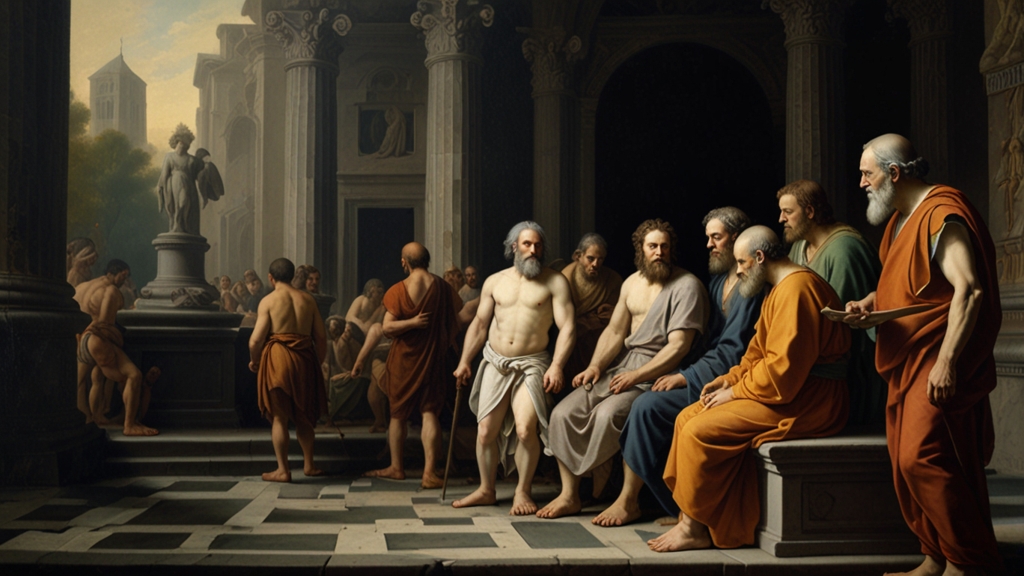Could Ancient Civilizations Hold the Key to Modern Medicine?
Modern medicine has made incredible advancements in recent decades, driven by cutting-edge technology and research. However, some of the most promising innovations might come from an unexpected source: ancient civilizations. These early societies, often regarded for their cultural riches and architectural marvels, also possessed a treasure trove of medical knowledge that could hold valuable lessons for today's healthcare challenges.
Traditional Remedies: A Legacy of Healing
Many ancient civilizations developed complex systems of medicine based on natural resources available to them. The Egyptians, Greeks, Chinese, and Indians were pioneers in this realm, utilizing herbs, minerals, and animal products to treat various ailments. Modern pharmacology is just beginning to unlock the potential of these traditional remedies.
"The more we study ancient medical texts and practices, the more we realize that our ancestors had a profound understanding of the natural world and its therapeutic potential,"
says Dr. Jane Roberts, a medical historian at the University of Oxford. For example, willow bark, used for centuries by Ancient Egyptians to alleviate pain, was later discovered to contain salicin, a precursor to aspirin.
Ancient Surgery: Techniques Ahead of Their Time
Ancient surgeons displayed remarkable skills that sometimes rival or even exceed contemporary practices. In Peru, archaeologists have uncovered evidence of successful brain surgeries, known as trepanation, performed over 2,000 years ago. Likewise, the Ancient Indians conducted complex procedures documented in the Sushruta Samhita, an ancient Sanskrit text on medicine and surgery.
Professor Andrew Sullivan, a specialist in ancient medical techniques, states:
"The ingenuity and precision of ancient surgical practices challenge the notion that medical advancements are strictly a modern phenomenon. There is much we can learn from revisiting these old techniques."
Holistic Approaches: Balancing Mind, Body, and Spirit
Another crucial aspect of ancient medicine is its holistic approach. Ancient systems like Traditional Chinese Medicine (TCM) and Ayurveda from India focus on the balance between mind, body, and spirit. Modern medicine, often criticized for being overly mechanistic, is gradually integrating these ancient principles to offer more comprehensive care.
For instance, acupuncture, an integral part of TCM, is now recognized by the World Health Organization as a viable treatment for a range of conditions, from chronic pain to anxiety. Similarly, Ayurveda's emphasis on diet and lifestyle interventions is gaining approval in modern nutritional science.
The Future: Integrating the Old with the New
The question then arises: how can modern medicine effectively integrate these ancient insights? Researchers suggest a multidisciplinary approach, incorporating the best of both worlds. This involves rigorous scientific evaluation of traditional remedies and techniques and adapting them to contemporary contexts.
Pharmaceutical companies are increasingly turning to ethnobotany, the study of traditional plant-based medicine, to discover new drugs. Biotechnologists are also exploring ancient fermentation techniques to develop novel antibiotics and probiotics. Moreover, public health initiatives are beginning to incorporate the holistic principles of ancient medicine into mental health and wellness programs.
Conclusion
While it is essential to approach ancient medical practices with a critical eye, dismissing them entirely would be a mistake. Ancient civilizations possess a wealth of untapped knowledge that could revolutionize modern medicine. By combining the wisdom of the past with the innovations of today, we stand to create a more effective and humane healthcare system for the future.








